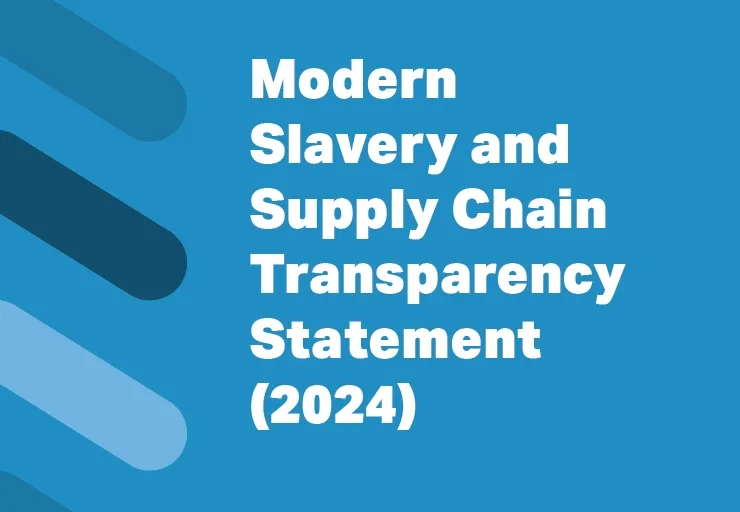Internally and through our Responsible Sourcing Team’s work with our suppliers, we take steps to build capacity to address risk by creating systematic change and engaging in continuous improvement efforts. One way we mitigate the risks of modern slavery arising in our supply chain is by implementing a Management Action Plan (MAP) with our highest risk suppliers and through conducting escalated monitoring and tracking of performance. MAP is a process that includes an in-depth review of the root cause of failures and intensive corrective programs to help suppliers improve their operations. Creating a MAP allows us to work with suppliers to ensure they can establish a proactive culture around human rights and social compliance. In 2024, we completed five MAPs, returning those suppliers to good standing.
Reporting Concerns
Newell encourages workers, retail customers and business partners to report any concerns related to our direct activities or our supply chain, including activities that may relate to an increased risk of modern slavery or human trafficking. Newell’s Speak Up and Anti-Retaliation Policy is designed to make it easy for anyone, including workers, to contact us through the company’s Ethics Hotline.
The Ethics Hotline is a safe way to raise concerns about potentially unethical conduct without fear of retaliation. It is hosted and operated by an independent third-party provider with leadership engagement through oversight by our Chief Ethics and Compliance Officer and regular updates to our Board. Hotline reports can be made by phone or via the internet. Reports are accepted in over 100 languages and can also be made anonymously. Newell employees are also encouraged to report unethical or illegal conduct, including human rights concerns, to our leaders, such as our Vice President of Global Sourcing, our Chief Ethics and Compliance Officer or the Responsible Sourcing or Legal Teams. In 2024, investigators received training on best practices to use when conducting investigations, including how to escalate and resolve serious concerns such as human trafficking or forced labor. Newell’s Global Ethics and Compliance team addresses reports promptly, discreetly, and confidentially, and is experienced in addressing calls related to potential human rights and modern slavery issues.
Training
In 2024, we conducted more than ten comprehensive training sessions, virtually and in person, aimed at strengthening supplier awareness and compliance. Through these sessions, we successfully trained more than 788 supplier personnel across various critical areas, including:
- Identification and prevention of forced labor
- Child labor risk mitigation strategies
- Updates to the Vendor Code of Conduct
- Key regulatory changes and compliance requirements
- Ethical business practices and corporate compliance
- Supply chain security and risk management
- Escalating concerns
These training initiatives were designed to enhance supplier capacity, reinforce accountability, and ensure alignment with evolving global regulatory and ethical standards. We continue to invest in education and engagement which remain a cornerstone of our responsible sourcing strategy.
We believe frequent and ongoing training and awareness on how to identify, prevent and mitigate the risk of modern slavery is an essential component of our overall efforts to help eradicate human rights violations in our supply chain. This work starts within, so we provide Newell employees who are tasked with social compliance and other employees with direct responsibility for supply chain management with relevant training on human trafficking and modern slavery. During sessions, employees are exposed to our “tone at the top” approach, where leaders engage in our global efforts to eliminate modern slavery from our supply chain.
In addition to training Newell employees, we provide regular ongoing training to our finished goods suppliers around key human rights topics. In 2024, representatives from over 250 suppliers attended our annual Responsible Sourcing Summit and received guidance on preventing human trafficking along with information about Newell’s expectations for supporting risk mitigation, continuous improvement and overall supplier development. Attendees also received presentations by leaders in Responsible Sourcing and Supply Chain and, for the first time ever, our Chief Ethics and Compliance Officer partnered with local team members in Asia to provide live in-person customized training on ethical decision making and methods to escalate concerns. The training included role-play activities involving members of Newell’s local leadership team and provided opportunities for question-and-answer sessions. As part of our long-term strategy, we continue to invest in standards for supporting human rights globally.
Assessing Effectiveness
Assessing the effectiveness of our modern slavery prevention efforts allows us to understand the greatest risks and focus our efforts where they are most impactful. This also helps us understand and continuously improve the way in which we identify and address relevant risks, including the risk of modern slavery.
Key measures we use to assess our approach include:
-
Auditing Suppliers: In 2024, we conducted 391 social compliance audits and 169 supply chain security audits for a total of 560 audits. We closed out 484 corrective action plans with suppliers for issues identified in the audits. In further response to audit outcomes, we trained over 700 supplier personnel on the elimination and identification of forced labor.
-
Monitoring Activity: Through our robust and proactive monitoring plan, we did not identify any instances of forced labor or human trafficking within our supply chain.
In addition to these measures, we also review the effectiveness of our efforts by assessing our suppliers’ abilities to detect and mitigate modern slavery risks along with their response to such concerns, including remediation efforts. To the extent we have discovered that our efforts to prevent or remediate child labor or forced labor have resulted in the loss of income to our workers’ families in any identifiable way, we have taken appropriate measures to address such impact to remediate the loss of income. We realize that modern slavery is a complex issue that requires dedication and effort to eradicate, and we continuously work internally as a company and with our suppliers to identify additional ways to assess the effectiveness of our actions.
 *Data represents a 12-month period ending December 31, 2024.
*Data represents a 12-month period ending December 31, 2024.

